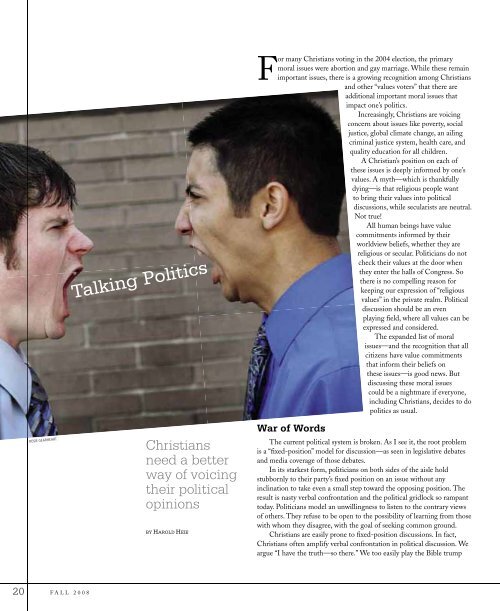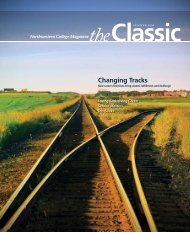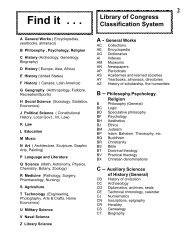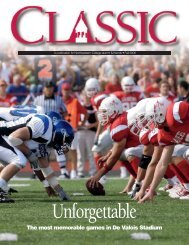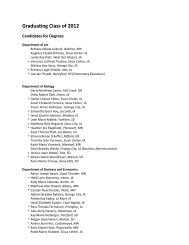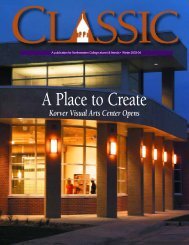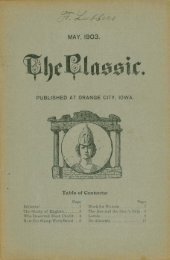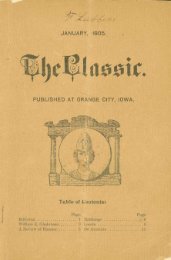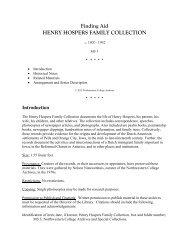fall 2008 - Northwestern College
fall 2008 - Northwestern College
fall 2008 - Northwestern College
You also want an ePaper? Increase the reach of your titles
YUMPU automatically turns print PDFs into web optimized ePapers that Google loves.
For many Christians voting in the 2004 election, the primary<br />
moral issues were abortion and gay marriage. While these remain<br />
important issues, there is a growing recognition among Christians<br />
and other “values voters” that there are<br />
additional important moral issues that<br />
impact one’s politics.<br />
Increasingly, Christians are voicing<br />
concern about issues like poverty, social<br />
justice, global climate change, an ailing<br />
criminal justice system, health care, and<br />
quality education for all children.<br />
A Christian’s position on each of<br />
these issues is deeply informed by one’s<br />
values. A myth—which is thankfully<br />
dying—is that religious people want<br />
to bring their values into political<br />
discussions, while secularists are neutral.<br />
Not true!<br />
All human beings have value<br />
commitments informed by their<br />
worldview beliefs, whether they are<br />
religious or secular. Politicians do not<br />
check their values at the door when<br />
they enter the halls of Congress. So<br />
there is no compelling reason for<br />
keeping our expression of “religious<br />
values” in the private realm. Political<br />
discussion should be an even<br />
playing field, where all values can be<br />
expressed and considered.<br />
The expanded list of moral<br />
issues—and the recognition that all<br />
citizens have value commitments<br />
that inform their beliefs on<br />
these issues—is good news. But<br />
discussing these moral issues<br />
could be a nightmare if everyone,<br />
including Christians, decides to do<br />
politics as usual.<br />
Christians<br />
need a better<br />
way of voicing<br />
their political<br />
opinions<br />
BY HAROLD HEIE<br />
War of Words<br />
The current political system is broken. As I see it, the root problem<br />
is a “fixed-position” model for discussion—as seen in legislative debates<br />
and media coverage of those debates.<br />
In its starkest form, politicians on both sides of the aisle hold<br />
stubbornly to their party’s fixed position on an issue without any<br />
inclination to take even a small step toward the opposing position. The<br />
result is nasty verbal confrontation and the political gridlock so rampant<br />
today. Politicians model an unwillingness to listen to the contrary views<br />
of others. They refuse to be open to the possibility of learning from those<br />
with whom they disagree, with the goal of seeking common ground.<br />
Christians are easily prone to fixed-position discussions. In fact,<br />
Christians often amplify verbal confrontation in political discussion. We<br />
argue “I have the truth—so there.” We too easily play the Bible trump<br />
20 FAll <strong>2008</strong>


